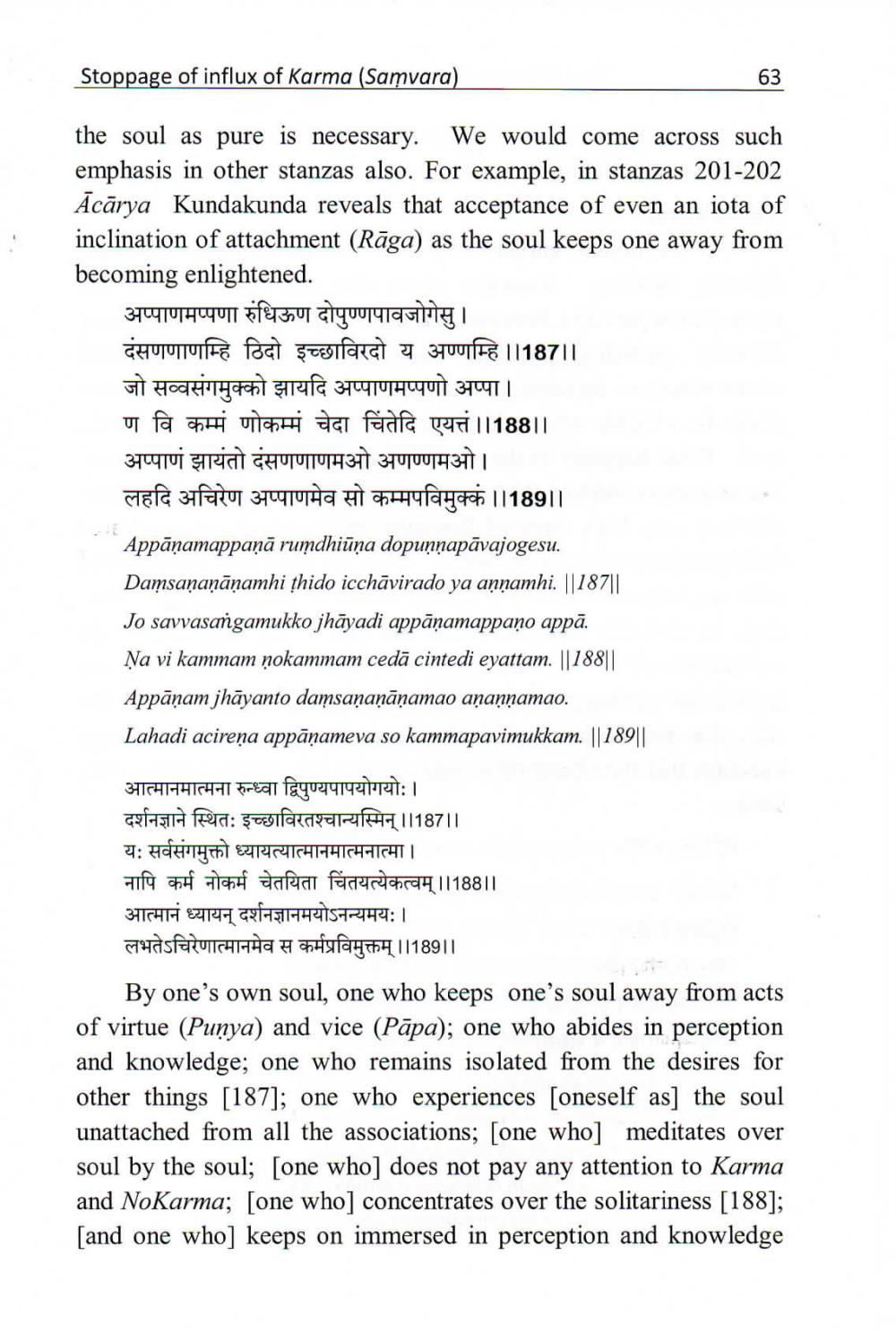________________
Stoppage of influx of Karma (Samvara)
the soul as pure is necessary. We would come across such emphasis in other stanzas also. For example, in stanzas 201-202 Ācārya Kundakunda reveals that acceptance of even an iota of inclination of attachment (Rāga) as the soul keeps one away from becoming enlightened.
अप्पाणमप्पणा रुंधिऊण दोपुण्णपावजोगेसु । दसणणाणम्हि ठिदो इच्छाविरदो य अण्णम्हि ।।187।। जो सव्वसंगमुक्को झायदि अप्पाणमप्पणो अप्पा। ण वि कम्मं णोकम्मं चेदा चिंतेदि एयत्तं ।। 188।। अप्पाणं झायंतो दंसणणाणमओ अणण्णमओ। लहदि अचिरेण अप्पाणमेव सो कम्मपविमुक्कं ।। 189।। Appāṇamappaņā rumdhiūņa dopuņņapāvajogesu. Damsananānamhi thido icchāvirado ya annamhi. ||187|| Jo savvasangamukko jhāyadi appānamappano appā. Navi kammam nokammam ceda cintedi eyattam. || 188|| Appānam jhāyanto damsananānamao ananmamao. Lahadi acireņa appāņameva so kammapavimukkam. ||189|||
आत्मानमात्मना रुन्ध्वा द्विपुण्यपापयोगयोः । दर्शनज्ञाने स्थितः इच्छाविरतश्चान्यस्मिन् ।। 187।। यः सर्वसंगमुक्तो ध्यायत्यात्मानमात्मनात्मा। नापि कर्म नोकर्म चेतयिता चिंतयत्येकत्वम् ।। 188।। आत्मानं ध्यायन् दर्शनज्ञानमयोऽनन्यमयः । लभतेऽचिरेणात्मानमेव स कर्मप्रविमुक्तम् ।।189।।
By one's own soul, one who keeps one's soul away from acts of virtue (Punya) and vice (Pāpa); one who abides in perception and knowledge; one who remains isolated from the desires for other things [187]; one who experiences [oneself as] the soul unattached from all the associations; [one who] meditates over soul by the soul; [one who] does not pay any attention to Karma and NoKarma; [one who] concentrates over the solitariness [188]; [and one who] keeps on immersed in perception and knowledge




